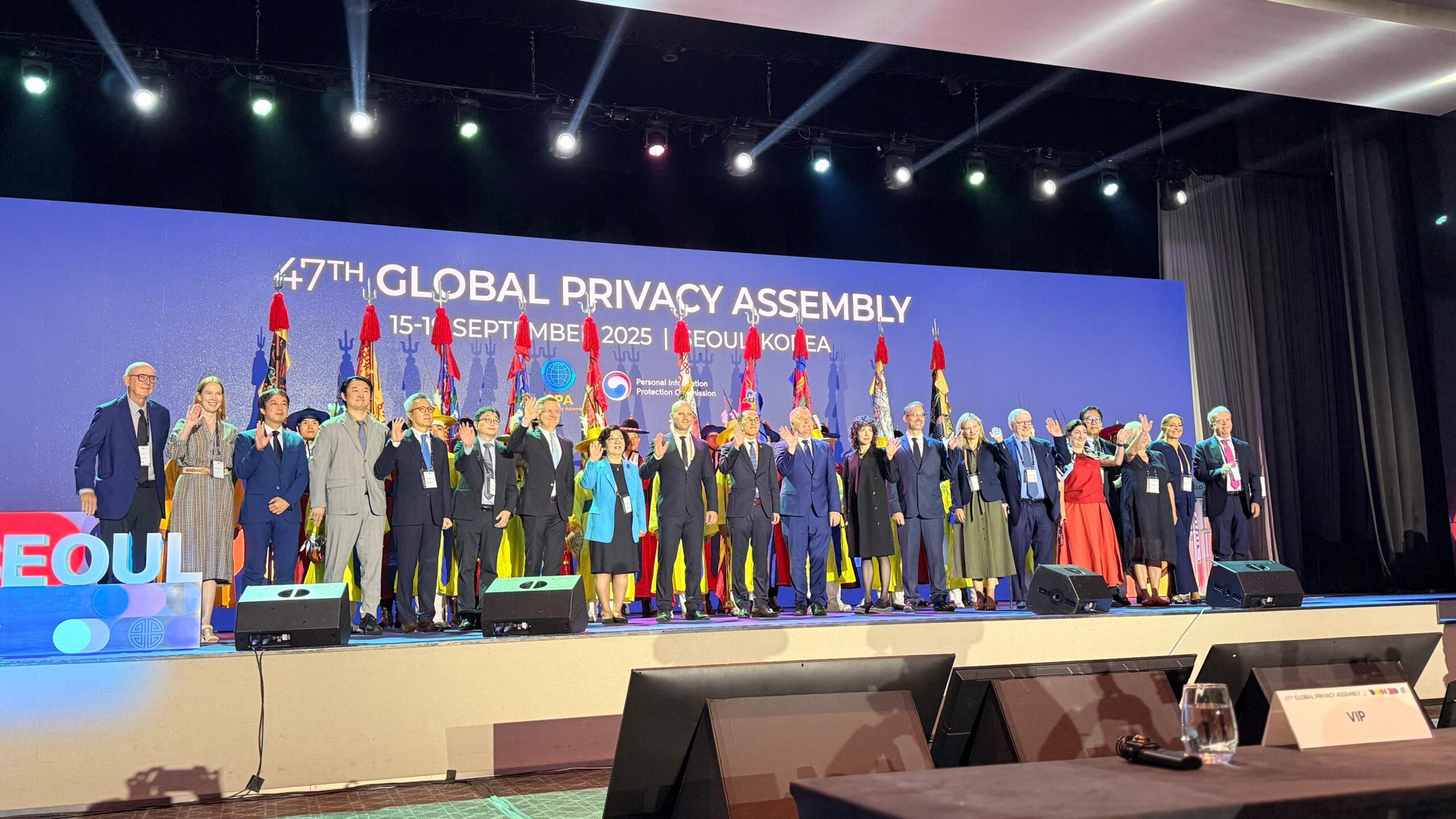
FPF Holiday Gift Guide for AI-Enabled, Privacy-Forward AgeTech
On Cyber Monday, giving supportive technology to an older loved one or caregiver is a great option. Finding the perfect holiday gift for an older adult who values their independence can be a challenge. This year, it might be worth exploring the exciting world of AI-enabled AgeTech. It’s not only gadgets; it’s also about giving […]

GPA 2025: AI development and human oversight of decisions involving AI systems were this year’s focus for Global Privacy regulators
The 47th Global Privacy Assembly (GPA), an annual gathering of the world’s privacy and data protection authorities, took place between September 15 and 19, 2025, hosted by South Korea’s Personal Information Protection Commission in Seoul. Over 140 authorities from more than 90 countries are members of the GPA, and its annual conferences serve as an […]

FPF Submits Comments on Personal Financial Data Rights Reconsideration
The Future of Privacy Forum (FPF), was pleased to provide comments and recommendations regarding the CFPB’s Advance Notice of Proposed Rulemaking (ANPR) for its Personal Financial Data Rights Reconsideration. FPF appreciates that the CFPB in its ANPR is exploring certain significant components of the final rule, with a view to improve the regulation for consumers […]

FPF ANPR Comment 10 17_submitted
1 1350 Eye Street NW, Suite 350, Washin gton, DC 20005 | 202 -768 -8950 | fpf.org October 17 , 202 5 Via Electronic Submission Acting Director Russell Vought Consumer Financial Protection Bureau 1700 G Street, NW Washington, DC 20552 Re: Comments on Personal Financial Data Rights Reconsideration (Docket No. CFPB – 202 5–0037 ) […]

Haksoo Ko

Understanding the New Wave of Chatbot Legislation: California SB 243 and Beyond
As more states consider how to govern AI-powered chatbots, California’s SB 243 joins New York’s S-3008C as one of the first few enacted laws governing companion chatbots and stands out as the first to include protections tailored to minors. Signed by Governor Gavin Newsom this month, the law focuses on transparency and youth safety, requiring “companion chatbot” operators to adopt new […]

Understanding the New Wave of Chatbot Legislation: California SB 243 and Beyond
As more states consider how to govern AI-powered chatbots, California’s SB 243 joins New York’s S-3008C as one of the first few enacted laws governing companion chatbots and stands out as the first to include protections tailored to minors. Signed by Governor Gavin Newsom this month, the law focuses on transparency and youth safety, requiring […]

Chatbot Bills Comparison Chart 2025
C om paris o n of 20 25 Chatb ot Le g is la tio n Cre ate d by: Ju stin e Glu ck , AI Polic y Analy st O ve rv ie w : The ch art belo w su m mariz e s se ve n ke y ch atb ot- […]

Interior Shots _ Yours Truly DC _ PartySlate
<!DOCTYPE html> <!– saved from url=(0050)https://www.partyslate.com/photo-collections/10942 –> <html lang=”en”><head><meta http-equiv=”Content-Type” content=”text/html; charset=UTF-8″> <meta content=”IE=edge” http-equiv=”X-UA-Compatible”> <meta name=”viewport” content=”width=device-width, initial-scale=1″> <meta content=”” name=”description”> <meta content=”Interior Shots | PartySlate” property=”og:title”> <meta content=”” property=”og:description”> <meta content=”https://partyslate.imgix.net/photos/1196668/photo-1fbcb420-e6d8-4800-ae66-7022bd5bec51.jpg?ixlib=rails-2.1.4&w=1200&h=630&fit=crop&crop=faces%2Cedges” property=”og:image”> <meta content=”1200″ property=”og:image:width”> <meta content=”630″ property=”og:image:height”> <meta content=”https://partyslate.imgix.net/photos/1196669/photo-baa06551-d6eb-46c6-81ed-d8edfaeabdf2.jpg?ixlib=rails-2.1.4&w=1200&h=630&fit=crop&crop=faces%2Cedges” property=”og:image”> <meta content=”1200″ property=”og:image:width”> <meta content=”630″ property=”og:image:height”> <meta content=”https://partyslate.imgix.net/photos/1196670/photo-becca7b3-cd4c-458c-8c8b-4fc8cad513e1.jpg?ixlib=rails-2.1.4&w=1200&h=630&fit=crop&crop=faces%2Cedges” property=”og:image”> <meta content=”1200″ property=”og:image:width”> […]

Senior Policy Counsel, Youth Privacy
Salary Range: $120,000 – $170,000 Annually General Overview:FPF is seeking a Senior Policy Counsel, Youth Privacy to advance our mission to support principled data practices. Key responsibilities for the position will include: working with the FPF team and leadership to define and execute a strategic vision for FPF’s work on data protection issues that are […]
